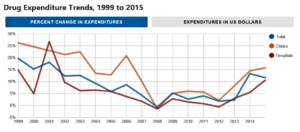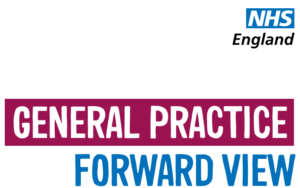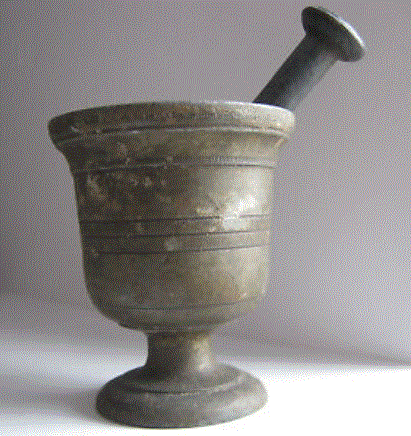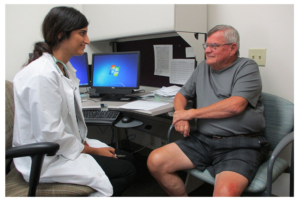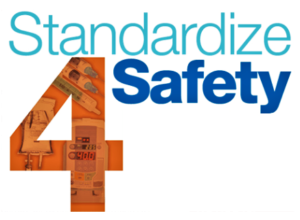- Scottish government backs new integrated five-year pharmacy degree for 2020 (pharmaceutical-journal.com)
A five-year integrated pharmacy degree, leading to pharmacist registration, is set to be introduced throughout Scotland in three years’ time. However, the detail of how the workplace learning will fit into the degree timetable and which model to adopt, has not yet been decided...Shona Robison, the Scottish secretary for health and sport, is backing the proposal from the special advisory group that...published its report, ‘Five-year integrated initial education programme for pharmacists in Scotland’…"Given our current focus on workforce planning and development and the extending role of pharmacists within multidisciplinary teams, this report provides a real opportunity to better prepare our new pharmacists for practice in Scotland by ensuring they are able to practice in the evolving NHS health and social care landscape."...there is also a need for more "enhanced experiential learning in clinical practice" and a recognition of the benefits of workplace learning which can reinforce confidence and professional competence...The new degree also supports the Scottish government’s priorities to strengthen the primary care workforce and its desire for every GP practice to have access to a pharmacist with advanced skills...
- Hospital Fined $510,000 After Pharmacist’s Illicit Prescription Drug Diversion (pharmacytimes.com)
A Pennsylvania hospital has agreed to pay $510,000 in fines after an inpatient pharmacist stole controlled substances. The pharmacist, Renata Dul, was found to have stolen more than 35,000 units of a controlled substance, including oxycodone….Abington Memorial Hospital disclosed the pharmacist’s actions to the DEA after detecting a discrepancy during inventory, which prompted an investigation that revealed pill count discrepancies, missing or incomplete medication inventories, and altered or missing drug records. An internal investigation pinpointed Dul’s ability to exploit a gap in the software used to track prescription medications...AMH agreed to pay a fine in response to allegations that their failures in control and practices enabled Dul to divert controlled substances for illegal, non-medical uses...
- Hep C Services Pharmacists Can Provide (pharmacytimes.com)
Jennifer Andres, PharmD, BCPS, clinical assistant professor of pharmacy practice at Temple University School of Pharmacy discusses the sorts of services pharmacists can provide for hepatitis C patients.
- Pharmacy Journal Examines National Trends in Prescription Drug Spending (ashp.org)National trends in prescription drug expenditures and projections for 2016 - Abstract (ajhp.org)
A sharp rise in prescription medication prices — driven by the introduction of new, expensive specialty medications and huge increases in the costs of older drug products with few competitors — drove an 11.7 percent increase in spending on medications in 2015, according to a new report published in AJHP (American Journal of Health-System Pharmacy)...The report projects an 11 to 13 percent increase in total drug expenditures in hospitals and health systems in 2016, which includes a 15 to 17 percent increase in clinic spending and a 10 to 12 percent increase in hospital spending...pharmacists need to be diligent about understanding what factors influence drug spending within their own organizations. "By understanding the key cost drivers, pharmacy leaders can implement programs to target them," he noted, adding that such strategies could include working with prescribers to use equally effective but less expensive medications or developing programs such as antibiotic stewardship to reduce unnecessary use of drugs...
- MP group wants pharmacist prescribers and minor ailment scheme in England (pharmaceutical-journal.com)
All-party parliamentary group recommends community pharmacy play a bigger role in the NHS to take pressure off Gps...Giving all community pharmacists the opportunity to become prescribers by 2022 and introducing a minor ailment service throughout England are among a series of recommendations made in a report by the All-Party Pharmacy Group, following an investigation into the impact of government reforms...The APPG, which is made up of a cross section of MPs with an interest in pharmacy, has also called on NHS England to outline their strategy for implementing the recommendations of the Murray Review into "community pharmacy clinical services"…Community pharmacy is a highly valued, but an underutilised resource, the APPG said, and the profession needs to play a more integrated role in both primary care services, and the treatment of patients with long-term health conditions...The health service is facing huge challenges due to patient demand, and by working to develop services, community pharmacy can shoulder some of the burden facing GPs, and other parts of the NHS...
- NHS England announces extra £112m for expansion of GP-based pharmacist scheme (pharmaceutical-journal.com)
The roll out of the pilot will see a further 1,500 pharmacists working in general practice by 2020-2021...NHS (National Health Service) England has announced an additional £112m ($137m) investment to roll out a pilot scheme embedding clinical pharmacists in GP surgeries...a commitment set out in the ‘General practice forward view’...The expansion...follows a “successful” pilot that involved 490 clinical pharmacists working in approximately 650 general practices across 90 sites...The goal of the scheme is to ease pressure on the NHS by increasing capacity in general practice, which will free up GP time as well as ensure safer prescribing by offering specialist advice and support for patients with chronic diseases…The success of the initial pilots has shown the benefits of having more clinical pharmacists in general practice, reducing GP workload and helping ensure patients are seen by the right professional in a more convenient and timely way...the scheme was welcomed by the Royal Pharmaceutical Society, which says it is a “significant step” towards its shared vision with the RCGP ( Royal College of General Practitioners) that every GP practice should have access to the expertise of a pharmacist...
- Medicare Delays Mandate on Claims for Unused Part of Drug Doses (ashp.org)
Hospital clinics and outpatient departments that bill Medicare for unused portions of certain medications recently gained six additional months to meet newly mandated documentation and billing requirements...the Centers for Medicare and Medicaid Services announced that Medicare administrative carriers must delay until January 1, 2017, implementation of a policy requiring the use of the "JW" modifier on Part B claims for appropriately discarded leftovers from single-use vials or packages...CMS introduced the JW modifier—a code that essentially enables itemized billing for the unused portion of certain medication vials—in 2007. But the agency allowed each MAC to decide whether to require the use of this billing mechanism or, instead, reimburse for wasted medication without separately itemizing it...Hospitals aren't required to bill for wasted medications, but those that don't are missing out on full reimbursement for eligible products...The...communication from CMS did not specify the reason for the implementation delay.
- 3 Reasons Why USP Supports Pharmacist Health Care Provider Status Legislation (ncpanet.org)
For people living in rural areas of the U.S., access to health care providers can be a serious challenge. Pharmacists can be part of the solution. And in a welcome show of bipartisanship, Republicans and Democrats in Congress are co-sponsoring legislation that can help...The Pharmacy and Medically Underserved Areas Enhancement Act...would include pharmacists on the list of recognized health care providers that can be reimbursed by Medicare for providing much needed patient care in underserved areas. USP supports this legislation as a major step forward in improving health care. Here are three reasons why:
- Pharmacists are highly trained health care professionals
- Pharmacists are easily accessible to patients
- Pharmacists improve health care
- VA Shifts To Clinical Pharmacists To Help Ease Patients’ Long Waits (khn.org)
Something astonishing has happened in the past year to outpatient treatment at the Veterans Affairs hospital here...Vets regularly get next-day and even same-day appointments for primary care now, no longer waiting a month or more to see a doctor as many once did...The reason is they don’t all see doctors. Clinical pharmacists — whose special training permits them to prescribe drugs, order lab tests, make referrals to specialists and do physical examinations — are handling more patients’ chronic care needs. That frees physicians to concentrate on new patients and others with complex needs...A quarter of primary care appointments at the Madison hospital are now handled by clinical pharmacists…It’s having a significant impact on reducing wait times and our office is trying to expand more of them nationally to increase access...VA hospital officials in both Madison and El Paso said they faced challenges initially in persuading doctors to delegate some duties to qualified pharmacists...Some physicians feel like it’s a turf war and don’t want to refer their patients because they feel the clinical pharmacist is trying to practice medicine...
- Medication Standardization Effort Aims to Improve Patient Safety (ashp.org)
...the reason a pharmacy prepares a specific concentration of an i.v. or oral liquid medication has little to do with clinical or patient safety considerations...the pharmacy staff follows standard recipes because "they've always done it that way," said Pasko, director of ASHP's Center on Medication Safety and Quality and principal investigator for ASHP's Standardize 4 Safety campaign...Pasko hopes the campaign will change that mindset and result in consistency, at the national level, in how i.v. and oral liquid admixtures are formulated for patient use..."We're really trying to emphasize to everyone that this is a patient safety effort,"..."We're putting patients at risk every day when we dispense a different concentration than what someone else does."...Standardize 4 Safety has put together an interprofessional panel of experts to propose voluntary, evidence-based standardized concentrations for 32 i.v. medications associated with a high risk of patient harm due to dosage errors...ASHP has urged pharmacists to get involved with the Standardize 4 Safety community through its online communication platform on ASHP Connect...




